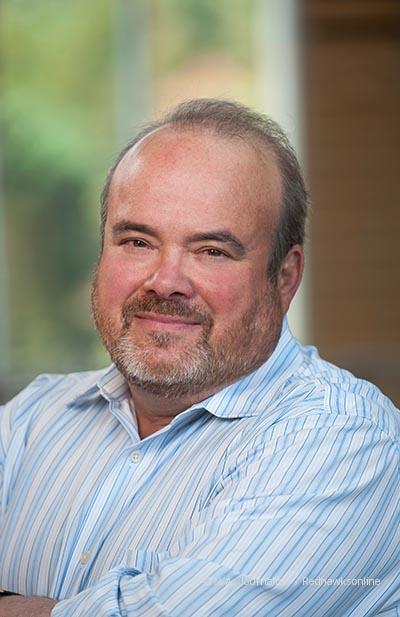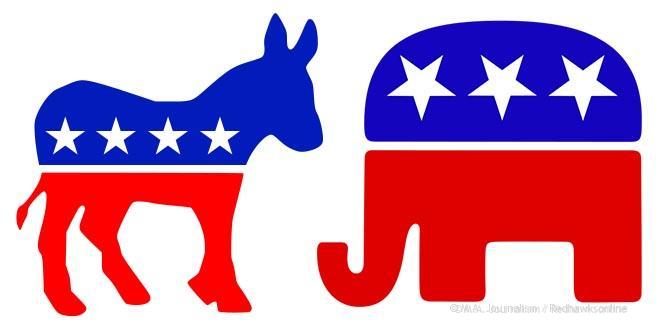Larry Jacobs, renowned U of M political scientist, shares thoughts on voting behavior
Lawrence R. Jacobs is McKnight Presidential Chair in Public Affairs, the Walter F. and Joan Mondale Chair for Political Studies, and director of the Center for the Study of Politics and Governance in the Hubert H. Humphrey School and the Department of Political Science at the University of Minnesota. The Center is a pre-eminent hub for political and policy analysis in the Midwest. (hhh.umn.edu)
The Talon‘s opinions editor Beck Westrem interviewed Jacobs on Oct. 2, 2020.
I have to ask you about your thoughts on Trump testing positive for COVID. How do you think this will affect the election?
First off, it’s obviously bad news. It’s a horrible disease. As President of the United States, this could affect the country. You know, I think the big thing about it is the President is behind in the election. And the President needed something to catch up. And this is not going to help him catch up. I think it’ll just kind of, eat up time that he desperately needed to try to convince voters. So, it’s not good news for the president in terms of his health obviously, but also for his political survival.

Prof. Larry Jacobs
Regarding the various reasons that people choose to vote for candidates, if you were to separate them into rational reasons and irrational reasons, what do you think are the most powerful reasons in both categories that people may choose their candidate?
The single most important influence on who Americans choose to vote for is their affiliation of political party. Now I don’t consider that to be irrational. I think it’s sort of emotional attachments, it’s psychological attachment. It’s an identity, it’s a social identity, it’s a way people organize themselves, it’s the way our political universe is structured. And you know you hear a lot of people saying today, at least in Minnesota, “Oh I know so many Republicans are not going to vote for Donald Trump.” Don’t believe them. Because we see folks who are Republicans voting for their party standard bearer about 95% of the time. There are few people who defect, but it’s very small. And it’s one of the reasons that the President’s support, even though there’s been a number of things that haven’t gone well particularly within this calendar year, remains 44 or 45%.
I also heard a statistic that in the 2008 election, 82% of people had already chosen their candidate by September. That makes me wonder how important the actual election races are. Do campaigns really hold weight anymore, or are they just kind of a procedure?
I think campaigns matter. I think one of the reasons that you see so many voters this year already committed to their candidate and September, is because of the campaigns. The campaigns, kind of wake up the political animal spirits. It renews loyalties it reminds voters: “Yeah, I got to vote or I got to contribute money or I’ve got to volunteer time.” So I think the campaigns matter in terms of just getting your supporters up and ready.
They also decide the outcome. Our elections are usually, in most parts of the country, decided by a few percentage points. And that’s going to be the undecided vote, even this year where there’s not many. You know, there’s going to be a group of people who will be deciding in the last week of the campaign, and the campaign is going to be part of that reason. I think one issue there that kind of makes it a little more complicated is today the campaigns are well run for the most part, and the basics of how you put together an organization and so forth, so they’re comparable. The campaigns are comparable. So, it’s not uneven sides, they’re even sides. So in a way, the campaigns are battling, they’re getting the forces ready. And typically, the quality of the campaign is not going to tip the election.
Many people talk about planning to “hold their nose and vote.” So I’m wondering when you think it is actually rational to do this? And when does a candidate’s character actually become an issue that you can’t just ignore, and it’s not a good idea to just hold your nose and vote?
Remember what I said about parties as a social identity?
Yeah.
That’s the big factor and so people will say, “Donald Trump really bothers me when he says crazy things. But, you know I really believe in what he’s doing on taxes. And so I’m going to hold my nose and vote.” Or: “He’s the lesser of two evils.” You know, politics is not an activity where you’ve got pure choices. You’re often trading off and the party might drive you to support a candidate that you might not otherwise. I think there are probably lots of Republicans who believe in lower taxes and regulations, and don’t find the president to be of tremendous character. They find him to be distasteful and inappropriate. But they still agree with the policy. And mostly, they’re a member of that party and so it’s like team spirit.
Do you think it’s becoming an issue recently with both parties becoming mega-identities, like groups of collective identities kind of changing into the parties? I don’t have a broad knowledge of political history at all and I’ve only been of age to pay attention to a couple elections. If I’m correct, you’ve been a professor of political science for over 30 years now….
[He laughs.] Sounds like a long time. I think the identity of the parties has become more tribal. I think it is, you know more of a social identity. But, if you go back to the 1950s – you probably weren’t born then – the 1950s was just after the New Deal with Franklin Delano Roosevelt, and you have a peak of identification with the Democratic Party. There’s a majority of the country identifying with the Democratic Party. It was after the Great Depression and the Democratic Party saved the country. And in the 1950s, the presidential candidate who won twice was Dwight Eisenhower, a Republican. You had a whole lot of people who had identified as a Democrat who were switching their ballot and voting Republican. So yes, I think there was more fluidity, and you can see that in a lot of different ways. If you looked at the pattern of people voting [in 1952 or 1956], a presidential election year, they might vote Republican on the presidential side for Eisenhower, then they’ll shift over and they would vote Democrat for US Senator, for US Congress, or for state house. That was known as split ticket voting – literally splitting your ticket. And that has not entirely disappeared, but it’s largely a thing of the past.
Secondly, if you looked in our legislative bodies you would see bipartisan coalitions like civil rights legislation. Civil rights voting is a historic piece of legislation that would never have passed if it wasn’t for Republicans. [There was a] Democratic president, Lyndon Johnson, and Republicans came over and supported him. So that’s another set of messages to voters of the parties that are different, whereas today, the elite in Washington or in St. Paul, they vote together as a bloc. It sends a message to their other party members, “Oh, this is the party’s position.”
Final point: We are seeing more of what is known as nationalization, or wave elections. With a nationalized politics, [it] drives the decisions down the ballot. And so, if Donald Trump is losing this election, and if he loses it decisively, it’s likely to have a wave effect on US Senate races and on the statehouse races here in Minnesota.
Do you think it’s ever rational to be a single issue voter? And along with that, do you think people ever are truly single issue voters, or are they claiming to be so as a front?
I mean I think there clearly are people who have very strong views about issues, like pro-life, single-payer [health insurance], what have you. And that drives their level of energy. I’m noticing, though, that the Bernie Sanders people are going to vote overwhelmingly for Joe Biden, even though he’s clearly a lot more moderate. And, you’ve got a lot of pro-life people who are voting for Donald Trump, even though he’s obviously not a religious person or really cares about that issue. He has kind of pandered to them a little bit. I think again this is tribal.
Stepping back from it, you might scratch your head and say, “Wow, that doesn’t really add up.” I think that’s kind of fair. We are at an extraordinary moment. If you go back to the Civil War, you can’t find a time when we were as polarized as we are today. The Civil War was a very bad war. There was a record number of people killed, mayhem throughout in the North and particularly the South. And that’s how divided we are. It’s a Hatfield-McCoy situation.

